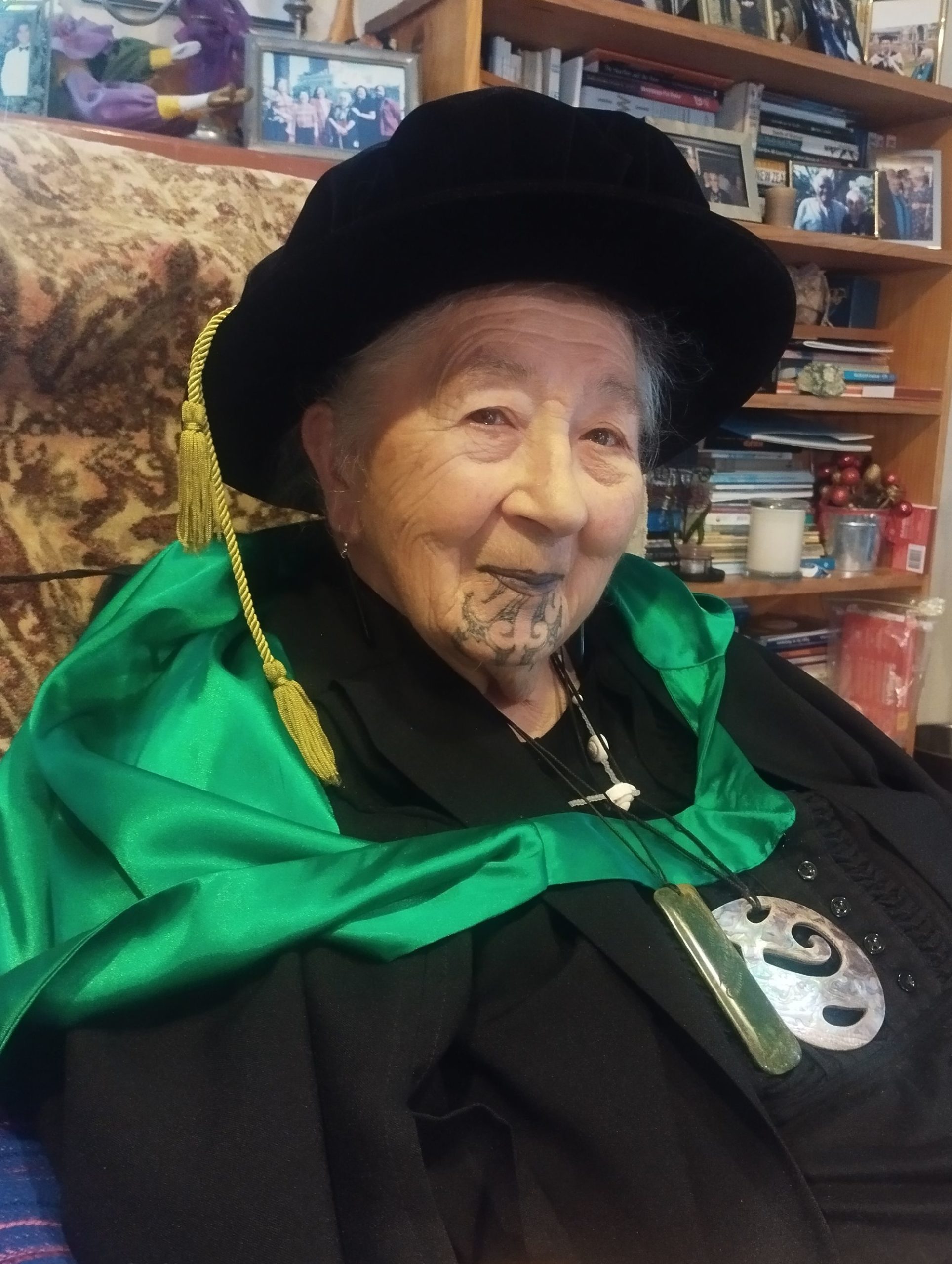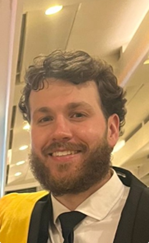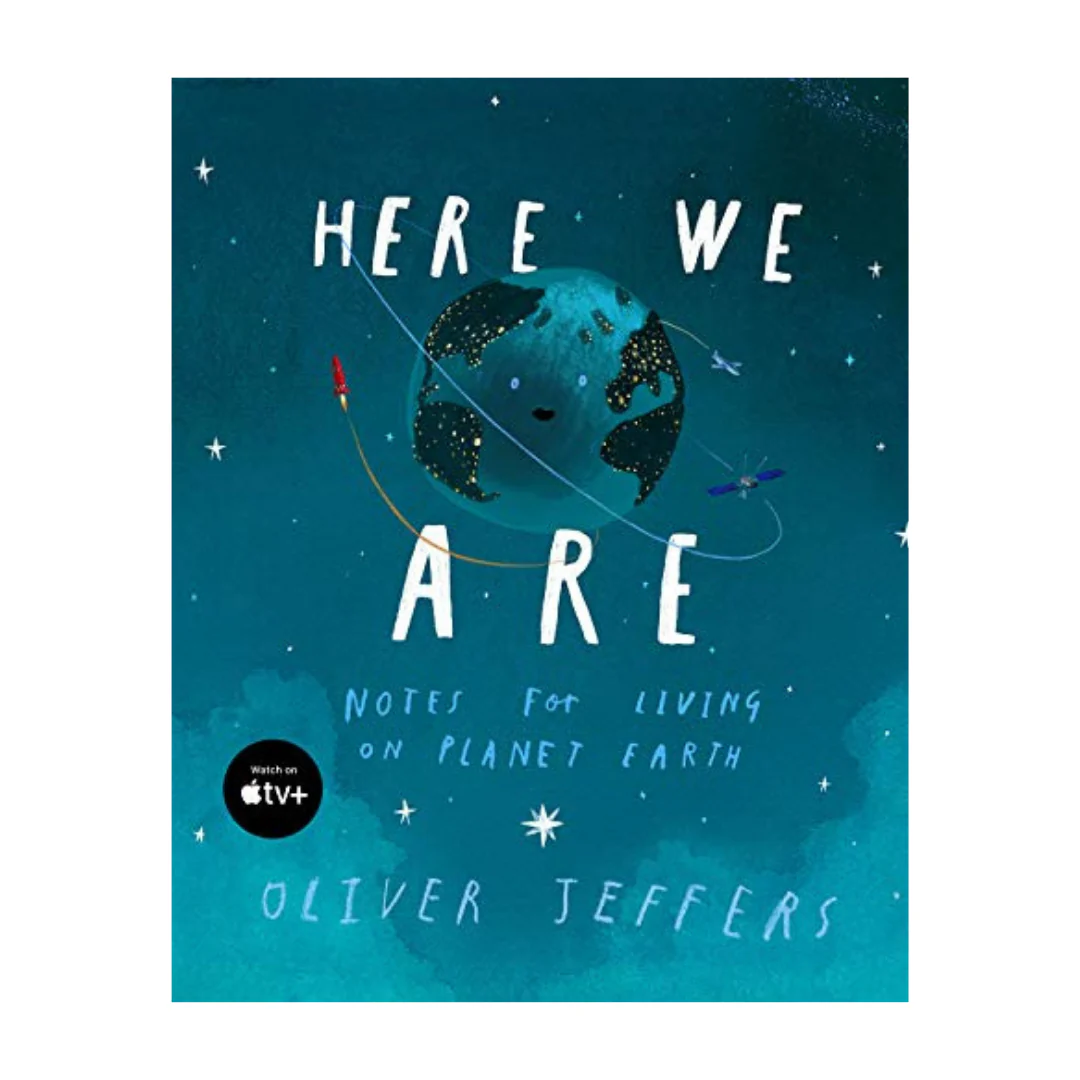Peace Foundation Patroness Honoured with Planetary Doctorate
The Peace Foundation Aotearoa celebrates its Patroness, Pauline Tangiora, who has been honoured with a Planetary Healing Doctorate by the Home for Humanity Movement for her lifelong dedication to social justice, indigenous empowerment, and peace
Read more below:

Above: Recent photo of Pauline Tangiora at her home in Māhia.
Peace Foundation Aotearoa is proud to acknowledge our Patroness Pauline Tangiora who was recently awarded an honourary Planetary Healing Doctorate from the Home for Humanity Movement for Planetary Regeneration.
On the 13 th of February this year, co-founders of Home for Humanity Movement for Planetary Regeneration, Dr Rama Mani and Professor Alexander Schieffer, visited Pauline at her Mahia home to present the award. The award recognises Pauline’s life-long advocacy for social justice, empowerment of indigenous peoples, and peace.
Piripi McKibbin: Weaving Māori and Pākehā Perspectives for Peace
From a childhood as a peer mediator to a leading voice for Māori responsiveness at the Peace Foundation, Piripi McKibbin’s journey is one of bridging cultures and fostering peace. Learn about his impactful work, his academic pursuits in Australia, and his creative endeavors in this insightful article
Read more below:

Above: Peace Foundation Council board member Philip (Piripi) McKibbin
Philip (Piripi) McKibbin likes to say he is a ‘karanga rua’ – a person of mixed heritage who, in the words of former Race Relations Conciliator Harry Dansey, ‘hears two voices, understands both, and respects both.’ He is Pākehā and Māori (Kāi Tahu), with ancestral connections to Murihiku [Southland] and Rakiura [Stewart Island].
Piripi joined the Peace Foundation Council (Board) in 2020, but his involvement with the organisation goes back much further. ‘I was actually a Cool Schools Peer Mediator at Papatoetoe North Primary School, back in the 90s,’ he
says. ‘I still have the badge!’
Most of his recent mahi for the Peace Foundation has involved cultural competency, with a particular focus on Māori responsiveness. For Piripi, this has meant building relationships with people who can lead for, and support, these kaupapa.
‘I’ve really enjoyed working with Pierre Lyndon and Dr. Jo Diamond,’ he says. ‘Pierre carries so much knowledge, and he has such a gentle and focused approach to mahi tahi [collaboration]. I learnt a lot from Jo too, about aroha, karakia, and diversity.’
Since Piripi joined the Peace Foundation, the organisation has placed a central focus on Māori, embracing initiatives around te reo and tikanga Māori [Māori language and protocol], updating its school resources, and working to serve Māori communities.
‘A real highlight for me was witnessing our first Māori Youth Symposia, in 2022,’ Piripi says proudly. ‘We held two – one in Tāmaki-makau-rau [Auckland], and the other in Ōtautahi [Christchurch]. I went along to the one in Tāmaki, which took place at the Unitec Marae. It was wonderful to see so many rangatahi [young people] learning about leadership and conflict resolution. Me mihi atu ka tika ki a Erina Williams mā, i ā rātou mahi mīharo!’
Piripi has also been involved in other Peace Foundation initiatives. He led the development of our plant-based catering policy, in an effort to ensure the Peace Foundation avoids violence towards animals whenever possible. He has also crafted role plays for use in schools, which allow rangatahi to practise conflict resolution. ‘In 2023, I wrote one about animal rights, and another about the climate crisis,’ he explains. ‘I’ve just finished drafting two more, on social media, and mental health.’
Recently, he has been involved in the Strategy/Direction Subcommittee, where he, Christina Barruel, and Tamkeen Saeid are undertaking an initiative called ‘Looking Back, Moving Forward,’ considering possible futures for the Peace Foundation.
Piripi is currently based in Australia, where he is pursuing his PhD through the University of Sydney. His thesis is titled ‘The Politics of Love and Multispecies Justice’, and is being supervised by Danielle Celermajer, Dinesh Wadiwel, and Christine Winter. He just published an article in AlterNative about Kaupapa Māori, which can be read here, and he has another coming out soon on critiquing Indigenous relationships with animals. At the same time, he has been working on writing projects, including a book proposal, and a novel called Colour, about a
fictional Indigenous people who ‘see a colour others cannot see’.
Piripi says he is glad to volunteer his time and effort to the Peace Foundation: ‘It’s an honour to work alongside so many inspiring and dedicated people. I believe the work Christina Barruel does in schools around peer mediation is especially important. We must commit to living together, and learning conflict resolution skills is integral to this.’
Planting Seeds of Peace Globally: A Peace Foundation Intern's Impact in Pakistan
From an internship in Auckland to building a peace-focused school in Karachi, Nadeem Ghazi’s journey showcases the lasting impact of the Peace Foundation Aotearoa. Explore how he’s using their resources to cultivate a culture of peace and empower young learners in Pakistan.
Read more below:

Above and below: Students participating in the 2024 Youth Peace Week activities at World Learning International School, Pakistan
In 2015, a young Pakistani man Nadeem Ghazi worked as an intern for the Peace Foundation. During this time, he accompanied Christina Barruel to peer mediation training workshops in primary and secondary schools.
On Nadeem’s return to Karachi, Pakistan, he set up the World Learning International School. The school has a strong focus on creating a better world. Nadeem has used Peace Foundation Aotearoa resources to implement the Cool Schools Peer Mediation Programme.
Each year, the Peace Foundation sends its Youth Peace Week Toolkit to Nadeem, enabling the school to join in the Aotearoa Youth Peace Week activities. Students at each year level participate in a wide variety of well-planned peace activities.

Promoting Peace Through Education: A Transformative Journey from New Zealand to Pakistan
In 2014, a groundbreaking initiative took root in Pakistan—Schools’ Peace Week and Cool Schools Program—in collaboration with The Peace Foundation New Zealand. These programs were introduced to support the integration of peace education in schools across the country, aiming to equip young minds with essential life skills such as conflict resolution, empathy, and cooperative learning.
Among the first to officially adopt this initiative was World Learning International School, a well-reputed institution located in Lyari Town, one of the most conflict-affected areas of Pakistan. With its strong commitment to creating a culture of peace, the school became a beacon of hope and transformation not only within its own community but also for educational institutions across Pakistan.
Since its adoption of the Peace Foundation’s programs, World Learning International School has actively supported and mentored other schools in embedding peace education into their curricula. Through formal Memoranda of Understanding (MOUs), the school has partnered with over 50 government and private institutions nationwide, fostering a strong network of peace-promoting schools.
The Schools’ Peace Week and Cool Schools programs have been widely appreciated by parents, educators, and communities alike. The impact on students has been profound—participants develop a deeper understanding of peaceful coexistence, learn effective strategies for resolving conflicts, and cultivate a more positive and respectful approach to life.
These Peace Education Programs, pioneered by the Peace Foundation New Zealand, continue to play a vital role in nurturing the hearts and minds of Pakistani youth. They have not only empowered students to become responsible and empathetic individuals but have also contributed to the broader goal of building a more peaceful and inclusive society.
Cool Schools in Action: Lyttelton Primary's Peer Mediation Success
How do you build a positive school culture? Lyttelton Primary School has found a powerful answer: their dedicated team of peer mediators. Learn how these students are fostering peace, resolving conflicts, and making their school a better place for all.
Read more below:

Above and below: Student peer mediators at work in the playground at Lyttelton Primary School.
According to Tumuaki/Principal, Jenny Felton, peer mediators make a huge difference to their school culture. Jenny writes:
“At Lyttelton Primary School, our Peer Mediators play a vital role in fostering a positive and supportive school environment. These dedicated students are trained to help their peers resolve conflicts, communicate effectively, and build stronger relationships.
Following an initial training workshop with Tracy Scott, the Peer Mediators undergo further termly training with the School Coordinator to develop essential skills such as active listening, empathy, and problem-solving. We utilise the lessons in the Cool Schools resource handbook. This equips them to handle a variety of situations with confidence and care.”
When disagreements arise among students, Peer Mediators provide a safe and neutral space for discussion. They guide their peers through the process of understanding each other’s perspectives and finding mutually agreeable solutions. During our termly training sessions, our peer mediators practice using the script and role-playing scenarios they have encountered in the playground to build their skill set further.
Beyond resolving conflicts, Peer Mediators actively promote values of respect, kindness, and inclusion. They work to ensure that every student feels heard and valued within our school community. Our peer mediators also carry Lyttel REP cards (school token system) and actively look out for peers demonstrating our school values – Manaakitanga, Ngākau Aroha and Manawanui. They provide peers with timely feedback on their positive behaviours and award them a Lyttel REP card.
Our Peer Mediators also organise activities and campaigns to raise awareness about the importance of communication and collaboration in maintaining a harmonious school environment. They actively get behind NZ Bullying – Pink Shirt Day, Peace Week and present snippets in our school assemblies promoting the work they do in our school.
The presence of Peer Mediators at our school helps to create a more peaceful and supportive school atmosphere. Students feel empowered to handle conflicts constructively, and the overall sense of community is strengthened.
We are incredibly proud of the hard work and dedication of our Peer Mediators. Their efforts make a significant difference in our school, helping to ensure it remains a place where everyone feels safe, respected, and valued.”
Exciting New Addition to the Team: Welcome Wouter!
The Peace Foundation warmly welcomes Wouter de Mare, a recent graduate from King’s College London with a Master’s in International Conflict Studies. Wouter is eager to apply his skills in non-violent conflict resolution and contribute to various projects, including research on Cool Schools, social media engagement, and training initiatives.
Read more below:

My name is Wouter de Mare, and I am thrilled to announce that I recently joined the Peace Foundation as an intern. I am recent graduate from King’s College London’s War Studies Department with a Master of Arts in International Conflict Studies, where I have developed a keen interest in researching and applying non-violent forms of conflict resolution. Here, at the Peace Foundation, I hope to both apply my skills as well as learn from all that you and the students have to offer.
In my role as an intern, I am involved in a variety of activities with a particular focus on: overseeing a team of motivated and talented students from the University of Auckland who are doing research on the long-term implementation of Cool-School programmes at primary schools; researching strategies for the Peace Foundation to expand its reach on social media, particularly Instagram; participating in, and facilitating training sessions; and assisting with various office tasks. The past few weeks interning with the Peace Foundation have already been a great success, and I cannot wait to see what the next five months will bring.

May 14th & 15th
Te Pou o Rongo, Māori Youth Peace Symposium, Ōtautahi
May 16th
Peer Mediators Big Day Out, Ōtautahi
May 21st
Bay of Plenty Cool Schools Coordinators’ Workshop
May 22nd & 23rd
Auckland Cool Schools Coordinators’ Network Meeting
May 29th
Save the Date: Youth Peace Week
August 3rd-9th. Registrations will open early Term 2
Save the Date: Auckland Youth Peace Symposium
August 22nd. Registration will open in Term

Our Special Pick for Kids:
Here We Are: Notes for Living on Planet Earth

Written and illustrated by Oliver Jeffers
Harper Collins Children’s Books, London, 2017
ISBN 987 000 826616 5 (hc)
Children’s picture book
Highly recommended
This book is a gem! The narrator is the author talking to his newborn son about the world he has been born into. We are reminded just how small we, and our earth, are in relation to space. Jeffers’ stunning illustrations introduce the child to the land we stand on, the sea that surrounds us, and the expansive sky above. We are introduced briefly to the peculiarities of the human body and why we need to look after it. More importantly, Jeffers’ reminds us that although we ‘come in many shapes, sizes and colours’, and may ‘look different, act different and sound different’ … ‘we are all people’.
Towards the end of the book, there is an illustration of earth as seen from space. We are told that although the earth appears big, it has many people. Jeffers urges us to be kind to each other and look after the earth, as it is all we have. He concludes with a wise quote from his father, ‘There are only three words you need to live by son: respect, consideration and tolerance.’
Our Top Pick for Adult Readers:
Too Much Money: How Wealth Disparities are Unbalancing Aotearoa New Zealand

Author: Max Rashbrooke
Released: November 2021
ISBN 9781988587943
Bridget Williams Books
Highly recommended
In New Zealand/Aotearoa, we are fortunate to have well-respected, researchers who are committed to creating a more equitable Aotearoa. What’s more, they are digitally savvy, and their work is readily accessible. One such individual is Max Rashbrooke. Max describes himself as an author, journalist and academic. He is a senior associate of the Institute for Governance and Policy Studies at Victoria University and a regular contributor to the Guardian and other news outlets.
Core to Max’s work is his desire to understand and address the growing divide between rich and poor in New Zealand. His first book was Inequality: A New Zealand Crisis I (published by Bridget Williams Books in 2013 and updated in 2018). His latest book is IToo Much Money: How Wealth Disparities are Unbalancing Aotearoa New Zealand I (published in 2021 by BWB). This dismantles the myth that we are an egalitarian country. Using a range of data, Max shows the extent of income and wealth gaps and how these become intergenerational. He then shows how this is intensifying social and economic divisions, resulting in the emergence of a class-based society.
Max has been involved in the establishment of IDEA, the Institute for Democratic and Economic Analysis. This independent, charitable trust is committed to ongoing research, analysis and dissemination of information about social and economic inequality in New Zealand, democratic renewal, and how to return Aotearoa to a more equitable society. Their site https://substack.com/@ideas4nz has weekly articles and links to further readings.

Recent Comments